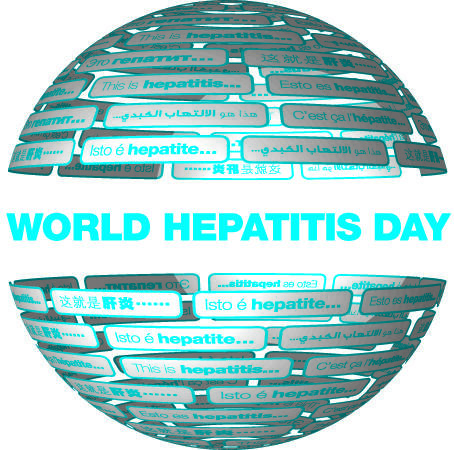As we pause to recognize this terrible disease which causes inflammation of the liver and often leads to cancers, the hope is to find the missing millions who are infected without knowing and without getting needed treatment.
There are 5 main types of Hepatitis: A, B, C, D, E. Because people are unaware they are infected there is a risk that it will be spread from person to person. Hardest hit are children and marginalized populations, including people who live in very close quarters.
Hepatitis A is generally contracted by drinking dirty water or eating foods that have been contaminated during preparation or are fish or shellfish caught in contaminated water and then undercooked. People generally can recover from an exposure to Hepatitis A.
The most common routes of transmission for Hepatitis B or C include the sharing of needles or other drug paraphernalia, body art unsterilized equipment, improperly sterilized medical equipment, accidental needlesticks in healthcare settings and sharing hygiene items such as toothbrushes or razors. Both B and C can be passed at birth from mother to child. Hepatitis B can also be sexually transmitted.
Symptoms of Hepatitis include the following:
- fatigue.
- flu-like symptoms.
- dark urine.
- pale stool.
- abdominal pain.
- loss of appetite.
- unexplained weight loss.
- yellow skin and eyes, which may be signs of jaundice.
It is important to remember that Hepatitis C frequently has no symptoms at all.
Testing for Hepatitis is not generally considered a routine test during an annual physical. It is important to be forthcoming with your health provider if you have noticed the symptoms or have a lifestyle that includes higher risks for infection. Further, Hepatitis can be present for a long time – for years. It is, therefore, really important for people to be honest with their health providers about behaviors they may have engaged in as teenagers or young adults despite being retirement aged now.


Recent Comments